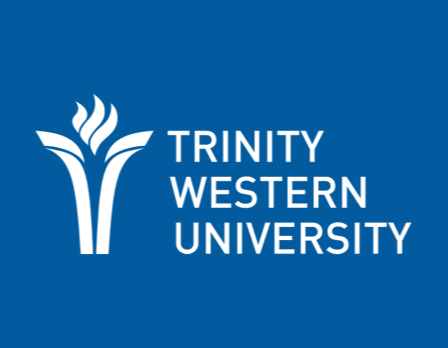The world is becoming increasingly borderless thanks to globalisation. Societies are becoming more diverse as people of various cultures and nationalities integrate within different communities, which means more individuals may not only find themselves living but learning and working with others of different nationalities and cultures.
Combined with the advent of technology, which has made travelling abroad safer and more affordable, students and individuals can take this opportunity to study or work abroad, helping to not only improve their understanding and awareness of global cultures, but to also give them a competitive edge to thrive in the 21st-century.
So, while universities play a pivotal role in shaping the minds of students, are they doing enough to create the right environment that would help them succeed in the future?
The right ingredients for 21st-century success

Source: Trinity Western University
While the world calls for graduates to be relevant and meet industry needs, universities also have a role to play by remaining significant, ensuring they prepare students for a world they will soon be entering to avoid skills gaps.
Tackling this by the reigns is Trinity Western University (TWU). True to its motto, inspiring hearts and minds, TWU – a Christ-centered and accredited institution – uses a whole-person approach in its studies, developing well-rounded individuals who excel in the 21st century. This university prides itself in developing “godly Christian leaders” while having all the necessary ingredients to be a global university in today’s world.
Located in Langley, British Columbia, TWU offers a wide range of undergraduate, graduate and adult degree-completion programmes, and sits a mere 45 minutes from downtown Vancouver and two-and-a-half hours from Seattle, US.
Meanwhile, as the largest Christian university in Canada, TWU welcomes students from different countries and is home to a vibrant student population representing some 40 nations, providing a platform for learners to connect and enrich each other’s lives with their varied worldviews and international cultures.
This echoes the country’s foundations, in which diversity is ingrained; Canada is home to a diverse culture where multiple languages are spoken. English and French are the country’s official languages, but a report suggests that over 200 languages are spoken as either a home language or mother tongue.
Global opportunities
As the world of work becomes more global in nature, students must be equipped with the right skills and knowledge that allows them to thrive. This makes it important for them to develop cultural awareness to succeed in the 21st century.
As a testament to its commitment to being a contemporary university, prospective TWU students can look forward to travelling opportunities while studying at TWU. For example, every year, TWU students go on travel studies across the globe, to places such as in London, England, and even Paris, France, facilitating learning and providing a hands-on experience for all.
TWU also engages in Goodwill Tours in China, both for sporting or choir activities, enabling students to enjoy direct access to other cultures that will shape their worldview and deepen their understanding of different cultures, in addition to helping the university expand its global presence and brand in Asia. For example, the university’s 2017 Goodwill Tour is part of TWU’s initiative to exchange culture through sport, as well to ignite a deeper connection between Canadian and Chinese athletes.

Source: Trinity Western University
TWU has also expanded its global connections – the university has recently expanded its international reach to India and Nepal, becoming a first stop study destination for global learners, and also signed numerous agreements with key universities in China and the world.
This resulted in them playing a role in developing new Foundation Programmes for global learners, as well as the Great Wall International MBA Program in Tianjin, the BA Leadership International Degree Completion Program, and the Master of Arts in Leadership Program for Business Leaders – delivered in Mandarin, and even the Wuhan Government Visiting Teachers Programme to benefit all involved.
Meanwhile, prospective students, both local and international, who are keen to study at TWU can take note that the university and their donors provide a wide range of merit and need-based awards to help support students. Some of their merit-based awards include the Academic Scholarship, Leadership Entrance Scholarship (for first-year students), Athletic Scholarship, Music Scholarship and Theatre Scholarship.
These need-based awards are reserved for students who demonstrate financial need as determined by TWU’s Need Assessment or the FAFSA (for American students). Depending on your situation, students may be eligible for a TWU Grant, Endowment Award, campus employment (i.e. work-study) or a church-matching grant.

Source: Trinity Western University
If neither option is ideal for you, take heart in knowing that TWU is also the first university in North America to officially partner with social fundraising platform GoFundMe, helping students raise funds toward their tuition. While the money is transferred directly to the campaign beneficiary, the platform collects a five percent fee on donations.
Apart from offering numerous ways to fund your education, future students can be assured that the university has cemented its quality by receiving seven consecutive A+ rankings for Quality of Teaching and Learning, as well as three Canada Research Chairs and has won national championships in U Sports. Recently, two TWU faculty members were awarded the Tier 2 Canada Research Chair (CRC) awards in recognition of exceptional emerging research in their respective fields.
Undoubtedly, TWU can provide students with a multicultural community, from a personal and academic view, in addition to providing a springboard for future success with its global learning opportunities.
Follow Trinity Western University on Facebook, Twitter, Instagram, YouTube and LinkedIn
Liked this? Then you’ll love these…
Why is Canada a first-choice international education hub?
Looking at studying abroad? Here’s why you should think about Canada











